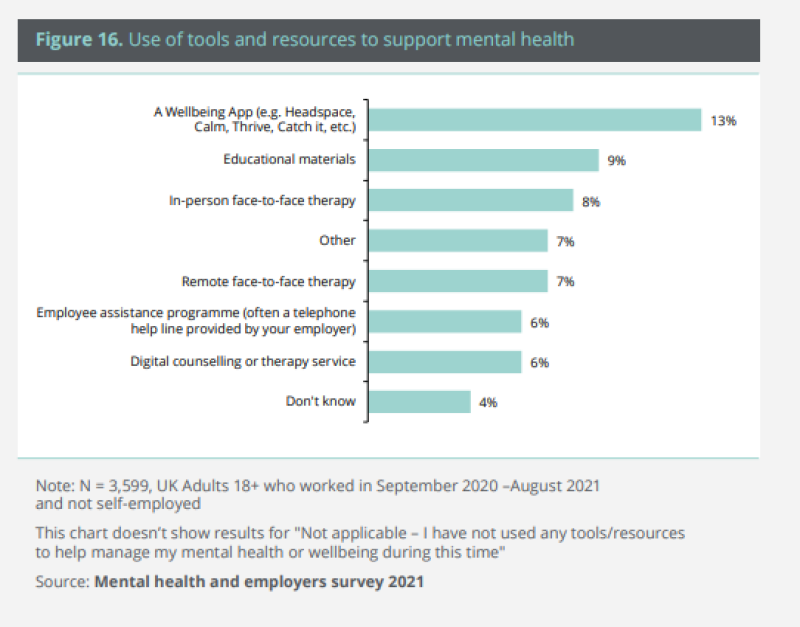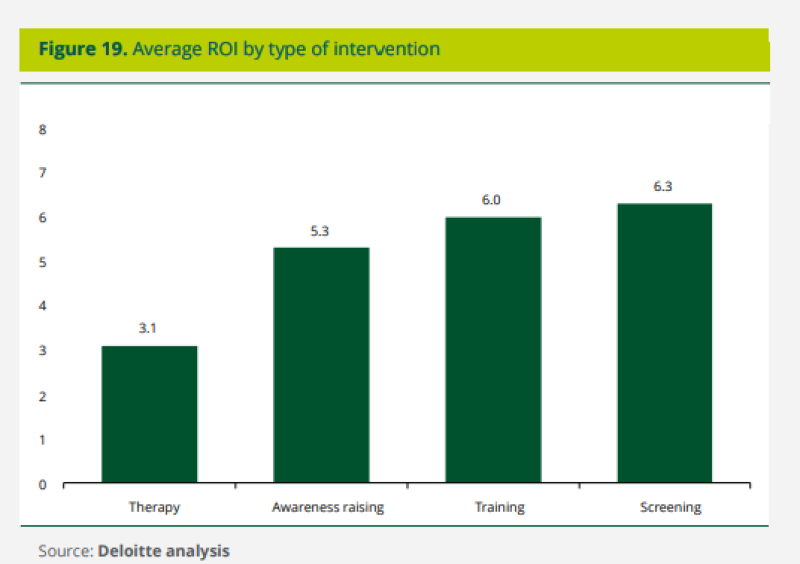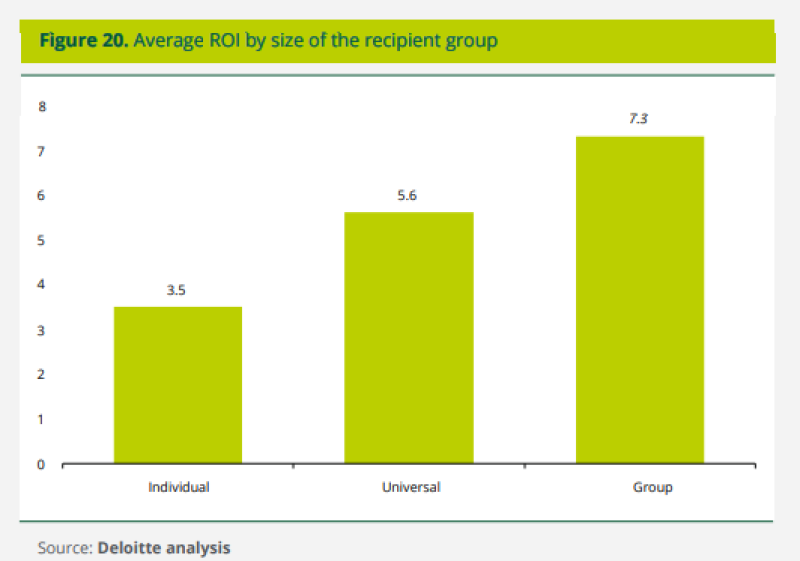Conducted in the Autumn of 2021, based on a nationally representative sample of 3,599 individuals in the UK, Deloitte’s report 2022 reviews the effects of the COVID-19 pandemic on the mental health of employees and the cost to employers. It looks at the ongoing effects and the lessons that can be learned in terms of how, when and to whom well-being measures should be targeted.
The great resignation
High turnover can be a huge issue for businesses. Deloitte found that 40% of turnover costs are now attributable to mental health problems. In the UK, the cost of labour turnover for mental health reasons has increased from 8.6 billion in 2019 to 22.4 billion in 2021 – an increase of over 150%.
The survey found that:
- 28% of employees have either left in 2021 or are planning to leave their jobs in 2022
- 61% cited poor mental health as the reason they are leaving.
- The reasons for leaving include: long hours; increased stress; and job insecurity
Absenteeism and presenteeism
Employers are also affected by absenteeism and presenteeism (underperforming due to attending work whilst ill). Presenteeism due to poor mental health accounts for 46% of total costs in the UK workplace.
Employee behaviour and expectations
Expectations on employers are changing:
- 37% of employees think more about their mental health than before the pandemic.
- 31% of employees indicated they would like to see more support for their mental health and wellbeing from employers.
- 35% would like their employers to help employees support friends and family.
In addition, according to the 2020 Deloitte Global Human Capital Trends report, 80% of nearly 9,000 respondents identified well-being as important or very important for their organisation’s success.
Unfortunately, over half (52%) of respondents did not feel supported by their employers.
What can be done
Although poor mental health can be a huge cost to the business, investing in well-being measures has been proven to provide a healthy return on investment.
It is worth noting that, overall, the most favoured ‘new way of working’ which could have a positive impact on mental health was to allow flexible working but this is not the only thing that can be done.
Change of attitude and awareness
First and foremost, the Tone at the Top must have clear messages that mental well-being is important. Leaders of UK organisations are advised to sign The Mental Health at Work Commitment, a public declaration of the prioritisation of workplace mental health.
Leadership must demonstrate their commitment e.g. through engagement sessions or reverse mentoring.
The commitment and support provided should be promoted regularly and conversation should be encouraged so that awareness is high amongst employees.
Support
Mental Health Training for Managers and Mental Health at Work Training for Employees should be provided. This will enable line managers and colleagues to spot signs of poor mental health and understand how to reach their employees and help.
Digital mental health support tools, as well as personal therapy, are important for helping employees assess and manage their own well-being. 36% of working adults said they had used some tools and resources to help manage their mental health.
The survey looked at the uptake of apps, digital services, and assistance programmes which indicated that employees are more interested and less reluctant to use digital tools than before the pandemic.

What is screening?
Screening using questionnaires or 1:1 interviews help identify individuals who may be susceptible or experiencing mental health issues. These methods are effective but labour intensive.
Investment
Deloitte research looked at four methods of addressing mental health and assessed the ROI for every £1 invested. This demonstrates the importance of employers, managers and employees being aware of mental health and being able to spot the signs of a decline in themselves or others.

Being proactive
The earlier mental health is addressed the better.
A universal approach addressing cultural change delivered a £5.60 return for every £1 invested; proactive interventions which support employee mental health at an early stage gives a £5.10 return, but this then drops to a £3.40 return for reactive interventions which provide help only after an employee’s mental health has deteriorated.
Being targeted
Deloitte found that interventions are more effective when provided to targeted groups of employees rather than presenting a message to all employees or providing one-to-one support.

The research found that certain groups of people had been more vulnerable to the effects of the pandemic: young people, ethnic minorities, employees with caring responsibilities and key workers. Specific support for these groups is essential.
Conclusion
Poor employee mental health can be hugely costly for your business but if you invest in well-being, you will get a return. Management must get on board, ensure that mental health is at the top of their agenda and provide the funding for the tools to assess and support their employees.
How Altruist can help
Altruist Enterprises is passionate about providing practical tools to help support your organisation. We offer tailored courses, delivered online and in-person, which include:
- Mental Health Training for Managers - Our one-day course equips managers with the confidence to address mental health, and practical skills and knowledge to support their team when issues arise.
- 2 Day Mental Health First Aid Training Course – MHFA is an in-depth mental health awareness course approved by the Royal Society for Public Health. The programme certifies candidates as Mental Health First Aiders.
- Resilience and Stress Management Training Course – Our three-hour course helps employees to increase self-awareness and build resilience and stress management techniques.



